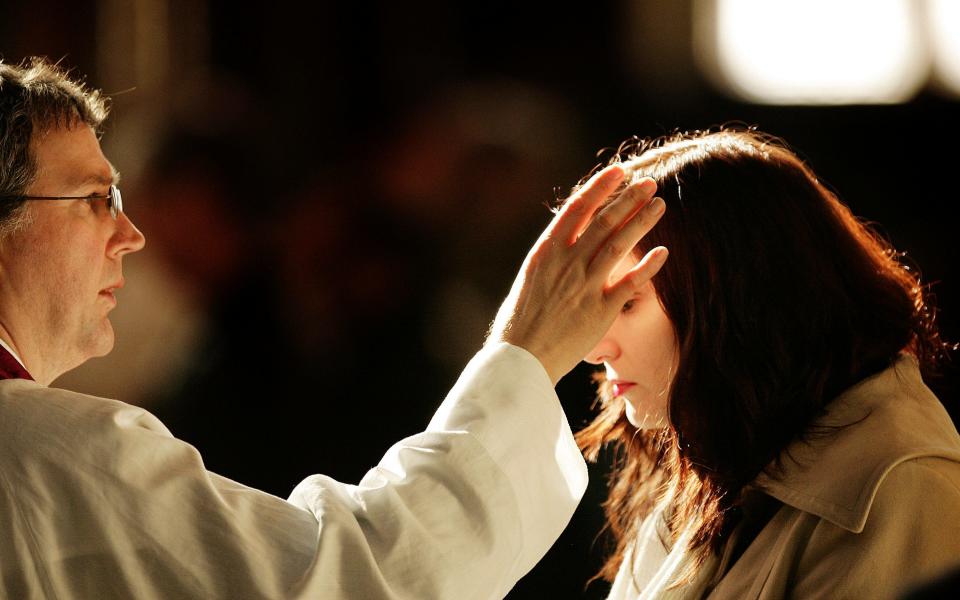Lent 2017 starts today, here's everything you need to know about Ash Wednesday
When is Ash Wednesday 2017?
Ash Wednesday, which marks the start of Lent in the Christian calendar, has been observed by Britons for centuries. Its exact date changes every year, because it is determined by when Easter falls. But it is always the day after Shrove Tuesday, or Pancake Day, and it always falls in February or March. This year, it is on Wednesday, March 1.
In January last year, the Archbishop of Canterbury, the Most Rev Justin Welby, suggested that Easter should fall on the same date each year. The plan, which would schedule the Christian festival on the same Sunday each year, was welcomed by parents and schools but angered some traditionalists.
At present, Easter falls on the first Sunday following the first full moon after the vernal equinox around March 21. This means it can fall on any Sunday between March 22 and April 25. Archbishop Welby said that Easter should most likely be fixed for the second or third Sunday of April.
What is Lent?
Ash Wednesday marks the first day of Lent, a period of 40 days (excluding Sundays) which comes before Easter in the Christian calendar.
Christians who observe Lent use it as a time for prayer and penance. By observing Lent, Christians are remembering the sacrifice of Jesus Christ, who withdrew into the wilderness and fasted for 40 days before his crucifixion.
Traditionally, pancakes are eaten on the day before Ash Wednesday to use up rich, indulgent foods like eggs and milk before the 40-day fasting season of Lent begins.
This year, Easter falls on Sunday, April 16. The English word Lent is a shortened form of the Old English word 'lenten', meaning 'spring'.
#Pancakes were invented as a way of using up all the leftover fatty foods before #Lent on #AshWednesday. #FoodFacts#indulge
— OddFacts (@OddFacts313) July 31, 2016
Why do people give things up for Lent?
Some people fast for the whole period of Lent, as a reflection of Jesus's sacrifice in the Judean desert.
Some Christians will fast only on Ash Wednesday and Good Friday, the Friday before Easter Sunday.
However, many people, even those who do not go to church, choose to give up a particular vice, such as their favourite food, alcohol or smoking for the period of Lent.
Instead of giving up chocolate, fizzy drinks or chips, many others use Lent as a period of time to help others. Hundreds of people take part in the Lenten Positive Acts Challenge, as another way to show praise for God.
Participants perform one positive act for each of the days between Ash Wednesday and Easter Sunday. These 'positive acts' can include calling up someone who is alone, donating to a worth cause, clearing up after dinner and letting someone go ahead of you in a supermarket queue.
Fasting in other religions
Every year, many of the world's 1.6 billion Muslims observe Ramadan, the annual period of fasting, prayer and giving to charity.
Muslims believe that the Prophet Mohammed received the final part of a series of revelations from God, which became the Koran, during the ninth month of the Islamic calendar, the month of Ramadan.
Followers mark this, the holiest month of the year, with a period of self-denial and purification. Those observing the fast must abstain from all food or drink – as well as smoking and sex – between sunrise and sundown for a month.
This year, Ramadan starts on Saturday, May 27 and continues for 30 days until Sunday, June 25.
How do Christians mark Ash Wednesday?
Christian churches hold special services at which worshippers are blessed on the forehead with a cross of ashes as a symbol of death and penance.
The minister or priest will then say: "Remember you are dust and unto dust you shall return", or a similar phrase.
Sometimes, the mark is left on the forehead to show that they carry the sign of the cross into the world. At other services, the ashes are washed off as a sign that the worshipper has been cleansed of their sins.
The ashes used at services on Ash Wednesday are made by burning palm crosses that were blessed the previous year.
How else is Ash Wednesday observed?
In Ashbourne, Derbyshire, players usually spend Ash Wednesday concluding the annual Royal Shrovetide football match.
The two-day event, which kicks off on Shrove Tuesday, pits the Up'ards against the Down'ards in an attempt to score in goals set three miles apart in the Peak District town.
Royal Shrovetide Football has been played in Ashbourne almost every year since the 17th Century. In southern Germany, it is traditional for people to wash their wallets in fountains to bring good fortune on Ash Wednesday.
It is said that anyone who washes their wallet will never see it empty. In Iceland, children dress up in costumes on Ash Wednesday and sing in shops in return for sweets and treats.
Traditionally, children collected ash into small bags and then were challenged to pin them onto other people's clothing without them noticing.

 Yahoo News
Yahoo News 








